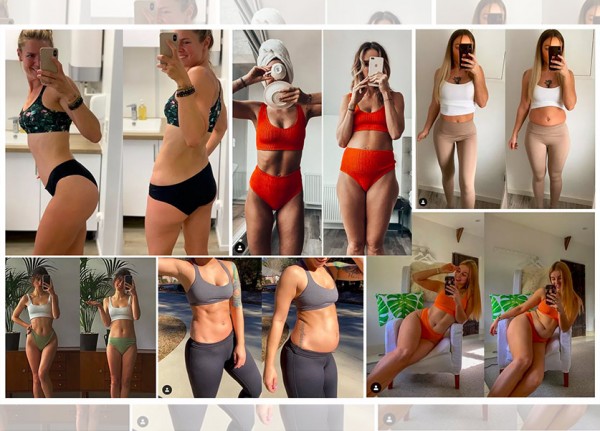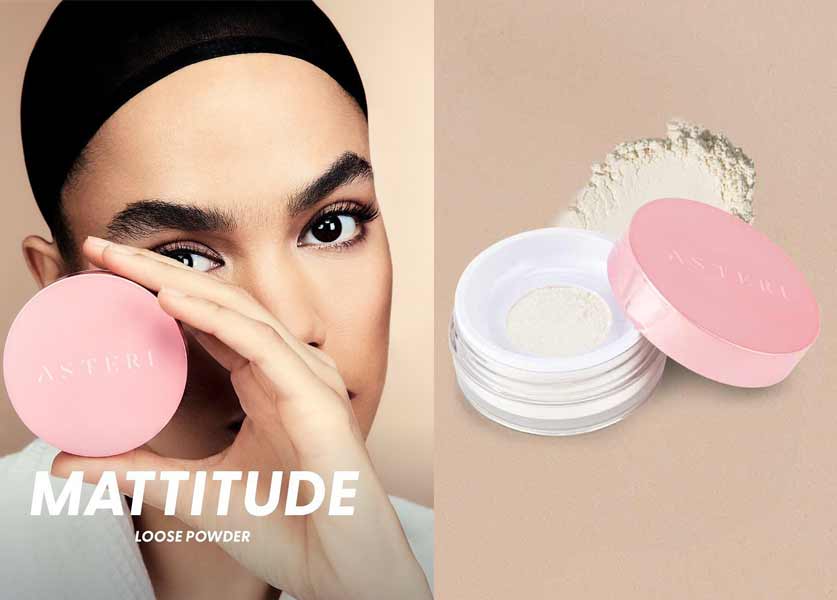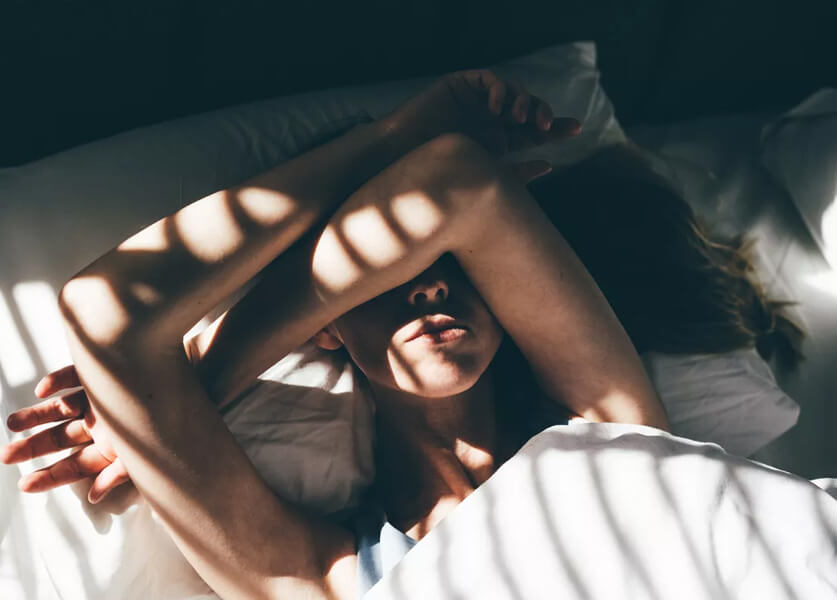BEAUTY
The perfect body does not exist: it’s all about the angle and the pose
Kassandre Fradelin - Madame Figaro
26-February-2021

The perfect silhouette does not exist, or it does only on Instagram: On February 14, sports coach Lucile Woodward proved that with a video showing her body from two very different angles.
The video went viral with more than 170,000 views. If the French woman made a name in the fitness world thanks to workouts posted on Youtube, this time she is tackling a more insidious problem: the illusion of the perfect body on social networks. In an instagram video, she showed how the posture and angle of the picture can totally change the way the body looks. In pictures, she’s in a sweater pulled up, flat stomach and slightly drawn abdominals, taken facing her profile. A bit later, everything relaxes and reveals a little rounded area in the lower abdomen. Same video, same body: but a different posture.
“Pregnant? NO ! 1st day of the cycle? YES ! Bad posture ? YES ! Need to lose weight? No ! Perfection does not exist ! It's all a question of angle, timing, mental and physical posture!” She wrote in the caption.
The coach is not at her first attempt and has already posted other photo montages to criticize the "rigged" beauty standards of social networks. And in that, she’s definitely not the only one who took this path: other influencers, such as Victoria’s secret Portuguese model Sara Sampaio, British journalist Danae Mercer or fitness blogger Chessie King who has also posted on Tik Tok and Instagram, using the viral hashtag #samebodydifferentpose.
Break the rules
For Lucile Woodward, she receives countless messages daily from women who don’t like their physical appearance. “It's very hard to receive all these testimonials from people who hate themselves” she explains. “I made this video for my followers, and specially for those who just can't seem to let go of this need for perfection". Beauty injunctions and the diktat of the “photoshoped” body are not a recent problem. But in recent years, social networks have come to exacerbate it, as Mickael Stora, psychologist and psychoanalyst, points out. "Instagram has democratized the injunction of the perfect body," says the founder of the Observatory of Digital Worlds in Human Sciences. “Because of the proximity established between the influencers and their followers, the latter feel that the influencers are only a reflection of them, the girl next door thing. The ideal therefore becomes twice as tyrannical ".
The limits of body positivism
“It is normal, healthy, and best for your body to adjust to the way you move. Be kind to people and to yourself and don't comment on other people's changing bodies”, advises top model Sara Sampaio in a Tik Tok video posted on February 12th, in which she flaunts her body from every angle. According to psychoanalyst and psychosociologist Catherine Grangeard, this craze can be explained by "a general feeling of women being fed up". "Society wants this kind of content right now, says the obesity specialist. People are fed up with these standards that make them suffer. "
And if the message is so powerful today, it is thanks to the body positive movement, celebrating self-love in all its entirety. Orchestrated for several years in the United States, it is relayed by celebrities such as the singers Beyoncé, Lizzo or Yseult in France. "This movement made it possible to denounce the stupidity of considering that only one type of body, of morphology, could be beautiful", summarizes Catherine Grangeard. On the other hand, if a woman helps to free herself from the dictates of current society, there is still room for improvement, according to coach Lucile Woodward. “This movement is important because it shows women of all body shapes but very often, in the photos, their buttocks remain firm and their skin smooth, without cellulite,” she explains. “It does not always reflect reality ”. The fitness specialist underlines the importance of celebs posting their photos without filters or exaggerated posture.
Shy but encouraging progress
Will we one day be able to make peace with our body? Psychologist and psychoanalyst Mickael Stora considers this evolution of mentalities encouraging but still too recent to be fully effective. “Self-tolerance results from social elements - and from that point of view influencers are important - but also psychic influence,” he says. According to the founder of the Observatory of Digital Worlds in Human Sciences, the body positivism movement is still too timid. “To really make a difference, we need to be more creative, more militant,” he concludes. Resistance will not happen on social media. Instagram works like advertising and therefore plays on two weaknesses, desire and guilt: the desire to be like the influencers we follow and the guilt of not being able to do it. " While waiting for deeper changes, Lucile Woodward is pleased to have been able to reach at least part of her community through her posts. The 40-year-old has received many thanking messages, and even more messages from women saying they are reassured. A positive point for the influencer, who intends to actively pursue her fight for self-acceptance.
Recommended

Gisou Introduces 3 New Hydrating Tinted Lip Oils
8-April-2025

Asteri Beauty Unveils Mattitude Loose Powder
4-April-2025

CHANEL Sublimage Le Sérum
24-March-2025
Most read
-
1
Alo Yoga Launches in Lebanon with Grand Opening at Beirut Souks
-
2
العد التنازلي لانطلاق منتدى الجمال والصحة النفسية والجسدية بدأ!
-
3
CHANEL Sublimage Le Sérum
-
4
The EMIGALA Fashion & Beauty Awards Announces its Fifth Edition
-
5
Maya Nassar Maalouf to Represent Lebanon at Ms. Universe World International 2025





